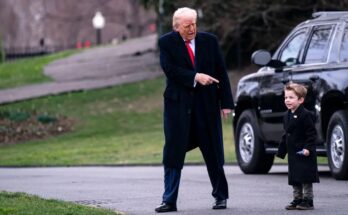This morning, the world was shaken to its core by the deeply sorrowful news of Pope Francis’s passing, solemnly announced by the Vatican on Easter Monday. The beloved pontiff, who had been bravely fighting double pneumonia, made his final public appearance just a day before in St. Peter’s Square—offering blessings and heartfelt Easter wishes to tens of thousands of devoted faithful.
Though visibly frail and confined to a wheelchair, Pope Francis delivered a profoundly moving Easter message—channeled through a Vatican archbishop—that spoke powerfully about the scourge of global conflicts, the alarming rise of antisemitism, and the urgent call for peace and religious tolerance worldwide. As Rome swelled with mourners and the faithful gathered in quiet reverence, a poignant question hung in the air: had the world just witnessed the last prayer of a truly extraordinary spiritual leader?
At 88 years old, Pope Francis had spent recent months in and out of Rome’s Gemelli Hospital, missing this year’s Holy Week ceremonies for the first time since his papacy began in 2013. He had entrusted his duties to his closest cardinals, stepping away from the public eye with rare brevity—his brief appearances, including a touching visit on Holy Saturday, now bittersweet memories.
Yet, even in declining health, his spirit and influence remained indelible. His legacy—woven with threads of compassion, humility, and relentless advocacy for peace—will echo far beyond the Vatican’s sacred walls, forever etched in history as the hallmark of a leader who never ceased striving to heal a fractured world.



